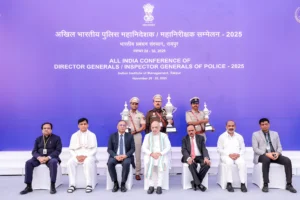
On Wednesday, the Delhi High Court stayed the trial court proceedings against Senior Congress Leader P Chidambaram in the high-profile Aircel-Maxis money laundering case.
The court also directed the Enforcement Directorate (ED) to respond to Chidambaram’s plea challenging the trial court’s decision to take cognizance of the chargesheet filed by the ED.
Justice Manoj Kumar Ohri, while issuing notice to the Enforcement Directorate, paused the trial court’s proceedings and scheduled a detailed hearing for January 2025.
Chidambaram, represented by Senior Advocate N Hariharan and supported by advocates Arshdeep Singh Khurana and Akshat Gupta, argued that the trial court had erred by taking cognizance of the offence under the Prevention of Money Laundering Act (PMLA), specifically under Section 3 read with Section 4 of the Act.
Additionally, Chidambaram contended that the trial court proceeded without obtaining the necessary prior sanction under Section 197(1) of the CrPC, which is required for prosecuting a public servant.
Chidambaram, who served as India’s Finance Minister at the time the alleged offences took place, argued that under Section 197 of the CrPC, no prosecution can initiated against a public servant without prior sanction from the government.
He stressed that since the charges involved actions taken in his official capacity as a minister, this procedural safeguard should apply.
Case Allegations
The Enforcement Directorate, in its chargesheet, alleges that Chidambaram, in his capacity as Finance Minister, improperly granted approval for a Foreign Direct Investment (FDI) worth USD 800 million (approximately Rs. 3565.91 crores) through the Foreign Investment Promotion Board (FIPB), even though he only had the authority to approve FDI up to Rs. 600 crore.
The ED claims that any FDI approval exceeding this limit should have granted by the Cabinet Committee on Economic Affairs (CCEA).
The ED’s charges further assert that Chidambaram’s actions were taken in his official capacity, which would fall under the purview of Section 197 of the CrPC, granting him protection from prosecution unless prior sanction was obtained.
In his plea, Chidambaram argued that the Special Judge erred by not considering the protection afforded to public servants under Section 197(1) of the CrPC.
He emphasized that the ED had failed to secure the necessary sanction from the appropriate authority before initiating the charges against him. Consequently, Chidambaram’s legal team has asked the High Court to intervene and halt the proceedings on these grounds.
The court’s decision to stay the proceedings provides Chidambaram with temporary relief, pending a more thorough examination of the legal issues at stake, including the applicability of Section 197 CrPC in this case.
The Delhi High Court has now set the case for a January 2025 hearing, where both the Enforcement Directorate and Chidambaram’s legal team will present further arguments.
Observers will closely watch this development, as it could have significant implications for the ongoing investigation and any future proceedings related to the Aircel-Maxis case.
Also Read: PM Modi Set To Receive Two More Prestigious National Honours; Raising Global Recognition To 19
To read more such news, download Bharat Express news apps


















